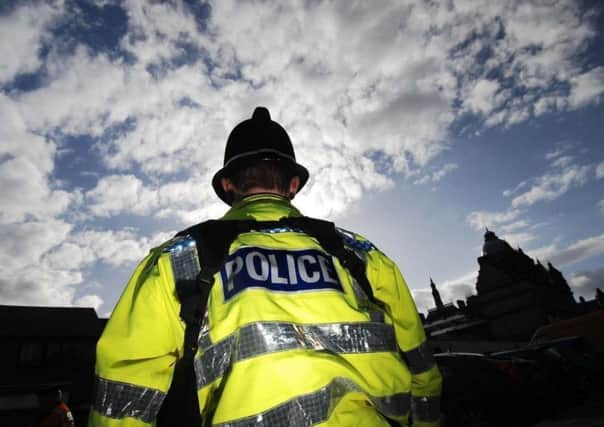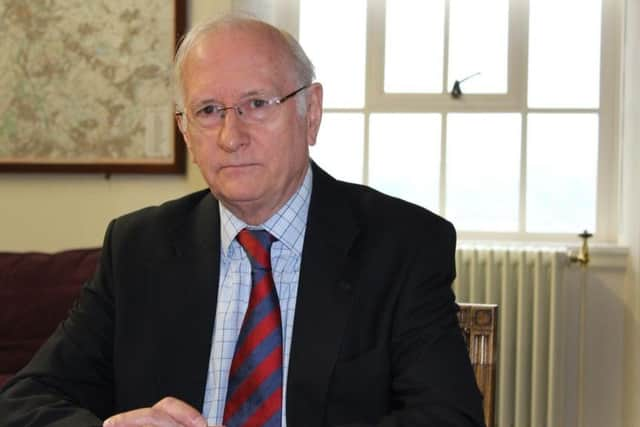Dr Alan Billings: The case for investigating hate crimes '“ despite the pressures facing South Yorkshire Police


No one could fault her analysis of the situation policing is in. Since 2010, funding has been cut by 19 per cent, arrests have halved and police numbers have fallen by 20,000. In South Yorkshire alone, we have lost about 500 officers.
Advertisement
Hide AdAdvertisement
Hide AdAt the same time, the police have been asked to do more and more ‘non-crime’ work – such as searching for missing persons or dealing with low level anti-social behaviour. While there may not be many of these ‘non-crime’ incidents, they tend to consume disproportionate amounts of police time and resource.


On the other hand, for most of this period, crime overall – as measured by the British Crime Survey – has been falling. If it had not, policing might have collapsed altogether.
But this overall fall has undoubtedly misled us – and Ministers. It has masked the fact that crime is changing and these changes are now putting forces under greater strain. In particular, violent, sexual and cyber crimes have been increasing. These are all crimes that tend to result in complex investigations demanding more not fewer resources.
Advertisement
Hide AdAdvertisement
Hide AdSo is Sara Thornton right? Should the police pull back from dealing with non-crime matters and concentrate on what she sees as core policing – such as burglaries and serious crimes?
My own feeling is that the police will have to be very wary of going down this road. Of course we want burgalries and serious crimes investigated, but what the public regard as core policing has changed over this same period. The reason for that is not hard to see. As the public sector has shrunk with the cuts, the police have emerged as the country’s 24 hours a day, 365 days a year, emergency service.
The police themselves have inadvertently contributed to this because they have not refused to respond to the various non-crime requests that have come to them over this time. They have built a reputation as the service which will always turn out and this has raised expectations that will be hard to dislodge.
So, for example, a teenage girl does not return to her children’s home at the agreed time of 10pm on a dark winter’s night. The overstretched home cannot spare staff to go and find her, even though they might have a pretty good idea where she might be, so they phone the police.
Advertisement
Hide AdAdvertisement
Hide AdIt would be a brave (or irresponsible?) Chief Constable who told his workforce to tell the home that this was for them and was not a policing matter. After the great scandal of child sexual exploitation, it is probably unthinkable. (But for young girl you can substitute ‘elderly person’ or ‘someone with mental health problems’).
I am not persuaded, therefore, that there is much scope for the police to start refusing to do certain things that they are doing now.
Equally, I cannot see how refusing to take misogyny or other forms of hate seriously helps either. Dealing with hate is one way of getting upstream of more serious incidents.
Something that begins as verbal abuse may end with even graver consequences – though judgments inevitably have to be made by officers on the ground. I remember only too well the case of Fiona Pilkington who had a daughter with learning difficulties. They were taunted by local youths over many months. Despite numerous calls to the authorities little was done to help them. Finally, Fiona drove to a lay-by, poured petrol over the back seat and incinerated herself and her daughter.
Advertisement
Hide AdAdvertisement
Hide AdSo what is to be done? We shall continue to press for more resources, but we must also get better at understanding the non-crime demands and finding ways, with partners, for reducing them. For example, there is no reason why hospital A&E departments should not employ more security staff of their own rather than asking for a police presence as a first resort.
Ten years of cutbacks have put new and different pressures on the police, but we cannot wind the clock back now.
Dr Alan Billings is the Police and Crime Commissioner for South Yorkshire.